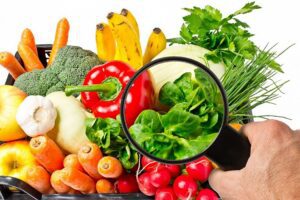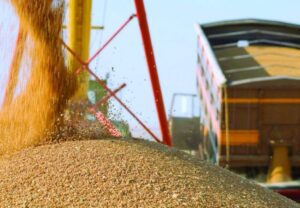
Another seven ships with 290 thousand tons of agricultural products for countries, Asia and Europe left the Ukrainian ports of Chornomorsk, Odessa and Pivdenny on Thursday, the Ministry of Infrastructure of Ukraine reports.
“In particular, among them are Esentepe with 29,000 tons of sunflower seeds for Oman and Key Knight with 67,000 tons of corn for China,” the agency said on its Facebook page.
In total, since the launch of the first vessel with Ukrainian food, 10 million tons of agricultural products have been exported, and the number of ships that left Ukrainian ports for the countries of Asia, Europe and Africa with food has reached 430.
As reported, in Istanbul on July 22, with the participation of the UN, Ukraine, Turkey and Russia, two documents were signed on the creation, first, for a period of 120 days, of a corridor for the export of grain from three Ukrainian ports: Chernomorskaya, Odessa and Yuzhny. Ukraine set as its goal to export 3 million tons of agricultural products per month as part of the initiative.
After Russia announced on October 29 that it was withdrawing from the “grain initiative” because of an alleged Ukrainian attack on ships in Sevastopol, exports were interrupted for several days, but on October 2 the barriers were finally lifted.

Another seven ships with 177,500 tonnes of foodstuffs left the Ukrainian ports of Odesa, Pivdenny and Chornomorsk on Tuesday for the countries of Africa, Asia and Europe, the Ministry of Infrastructure of Ukraine has reported.
“In particular, among the ships leaving the Ukrainian ports is the bulk carrier Sea Pearl J, which will deliver 30,000 tonnes of wheat to Tunisia,” the ministry said on its Facebook page.
Five ships were sent from the port of Chornomorsk: Hazar S, Sea Pearl J, Ince Evrenye, Milina, Magnum Power, while Lucky Trader and Erdek departed from Odesa and Pivdenny, respectively.
In general, since the launch of the first ship with Ukrainian food, 7 million tonnes of foodstuffs have been exported, and the number of ships with food sent to Asia, Europe and Africa has reached 316.

Ukrainian ports on Monday left seven ships with almost 56 thousand tons of food, having received permission from the joint coordination center (JCC).
“On October 10, seven ships left Ukrainian ports, they are transporting a total of 55,750 tons of grain and other agricultural products as part of the Black Sea Grain Initiative,” the SKC said in a statement.
Five dry cargo ships – Basel Athena (19 thousand tons of wheat), Taj (10.5 thousand tons of corn), Islander A (7.2 thousand tons of wheat), Blue Shark (3.4 thousand tons of soybeans) and Jaguar (2.5 thousand tons of food) sailed to Turkey.
In addition, the Mehmet Bey ship will deliver 7.6 thousand tons of soybeans to Egypt. The Ekmen Trans vessel left for Israel with 5.5 thousand tons of rapeseed meal.
The SKC specified that “the grain that arrived at the destination can be processed and then transported to other countries.”
“As of October 10, the total tonnage of grain and other agricultural products exported from three Ukrainian ports is 6,868,748 tons. In total, 629 ships have been allowed to move at the moment – 320 for arrival in Ukrainian ports and 309 for leaving them,” – emphasized in the message.
On July 22, in Istanbul, with the participation of the UN, Russia, Turkey and Ukraine, a document was signed on the creation of a corridor for the export of grain from three Ukrainian ports – Chornomorsk, Odessa and Pivdenny.

A critical step towards ensuring the safe and reliable export of Ukrainian food products through the Black Sea was made on Wednesday in Istanbul at four-party talks involving Ukraine, Russia, Turkey and the UN, UN Secretary General Antonio Guteres said.
“Today, an important and meaningful step has been taken towards a comprehensive agreement. Now more technical work will be required to materialize today’s progress,” he said at a briefing at the UN.
Guteres stressed that the goal of all parties is not just an agreement between Ukraine and the Russian Federation, but an agreement for the whole world.

Ukraine and Moldova agreed to deepen cooperation in the field of food safety, as well as expand the list of permitted commodity items for export to Moldova, in particular, for pigs and composite products.
Relevant agreements were reached during a meeting between the head of the State Service of Ukraine on Food Safety and Consumer Protection, Anatoliy Vovniuk, and Ambassador of the Republic of Moldova to Ukraine Valeriu Chiveri, according to the website of the Ukrainian department.
According to the Food Safety and Consumer Protection Service, as of today, 18 forms of veterinary certificates for export from Ukraine to Moldova have been agreed between the countries.
“During the Russian military aggression against the Ukrainian people, the support of friendly countries is extremely important for our state,” Vovniuk said.

22 million tons of food have been blocked in Ukrainian ports, Ukrainian President Volodymyr Zelensky said in Kyiv on Saturday after meeting with Portuguese Prime Minister Antonio Costa.
“Russia has blocked all maritime opportunities to export food products – our grain, barley, sunflower. 22 million tons have been blocked by the Russian Federation, “he said.
“And, to be honest, they are stealing slowly. Grain is taken out of ports and somewhere. We know what “somewhere” is, “Zelensky said.
According to him, Ukraine “works at the level of the Ministry of Foreign Affairs. At the level of conscience, it is impossible to work with these countries, so we work differently. ”
Zelensky noted that “it can be unblocked in different ways. One of them is military. That is why we are asking our partners for such requests for appropriate weapons, and Portugal is no exception. “